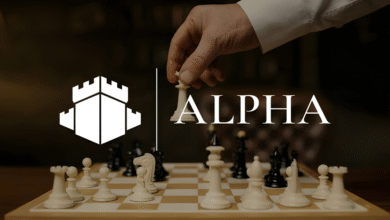Atlantic Trust’s Wealth Strategies Head On The Crucial Topic Of Legacy Planning

Family Wealth Report spoke to Atlantic Trust about the firm’s recent Generation-to-Generation Impact Summit, and how the theme fits in with the industry’s take on wealth planning today.
As highlighted by Dr Richard Orlando last year, one of the
main reasons why families sometimes fail to successfully transfer
wealth across generations is because the next generation is not
prepared. He argued that, all too often, most planning focuses on
preparing the assets for the family, instead of preparing the
family for the assets.
Indeed, the concept of legacy planning is crucial for
advisors and business owners, too. Earlier this month, it emerged
that issues around leadership, talent and business legacy
planning, for example, are top-of-mind among RIAs today (see
here).
Here, Family Wealth Report talks to Linda Beerman, head of
wealth strategies at Atlantic Trust Private
Wealth Management, about the firm’s recent family-focused
Generation-to-Generation Impact Summit, and how this theme fits
in with the industry’s take on wealth planning today.
Her insights also shed light on the ways advisors can
leverage this important topic to add value to their client
relationships and in turn boots their value
proposition.
What was the primary goal of Atlantic Trust’s recent G2G
(Generation to Generation) Impact Summit?
This was Atlantic Trust’s second multi-generational family summit
which was attended by more than 100 clients from across the US.
This year’s summit focused on the growing importance of family
legacy planning. A primary goal was to help our clients
understand what their own family legacy was and how to pass that
legacy down to future generations. For many clients, legacy
planning means using the family wealth to make a real difference,
so a number of our summit workshops were designed to inspire
families to make an impact on the world.
How does Atlantic Trust define legacy planning?
Legacy planning is not just about the money. It is defining,
reflecting on and expressing what a family’s wealth really means.
Legacy planning involves identifying the core values that make
the family who it is. Expressing that family legacy, and finding
ways to preserve and pass down what that legacy means, can be a
challenge for many affluent families looking to guide the next
generations as future stewards of the family’s wealth and values.
Where does legacy planning sit within the overall wealth
management process today?
Although legacy planning goes “beyond the numbers,” it must be
based on the foundation of the first-generation wealth owners’
financial security. Once the strategy for asset protection
is developed and tactics for moving wealth down to the
generations in a tax-efficient manner have been implemented, then
we can begin what we call the “holistic examination” of wealth.
Legacy planning helps many affluent families address their very
real concerns about having wealth, and what wealth means to them.
For example, how do we pass wealth on to our children while
preserving their well-being? How do we articulate clear roles and
responsibilities for owners and the development of future family
leaders? How do we structure a philanthropic philosophy and a
vehicle to carry forth the values we hope our children and
grandchildren share?
How does Atlantic Trust tailor its legacy planning
strategy as it works with individual generations?
After addressing the issue of financial security, the next step
in the legacy planning process is to develop a family mission or
vision statement that spells out shared values and describes how
the family’s wealth should be used to support and further the
family’s legacy.
While vision is critical as a touchstone, legacy planning must
include concrete outcomes. This can include a written family
vision statement, an ethical will, a letter to trustee or a
written family history. Traditional wills involve what you want
your loved ones to have; ethical wills involve what you want them
to know. While a letter to trustees is not a binding legal
document, it can be an extraordinarily meaningful piece of estate
and legacy planning, bringing forth strong and deeply held
feelings for the benefit of the client, the beneficiaries and the
trustee.
And finally, for a multi-generational family, philanthropy is
often a cornerstone of legacy. However a family structures its
philanthropic intentions, philanthropy has a valuable place in
legacy planning: a way to carry a family’s values forward—and
with impact on others.
What were the main issues raised by attendees?
Our clients were most interested in the workshops on legacy
issues—how do they get started on these types of projects, such
as capturing the stories, writing an ethical will and coming up
with a philanthropic idea that engages the family. The
workshops were a good first taste of actually engaging in these
activities, and the comment was that they wanted more time and
more of it. They were also very interested in the cyber
security sessions.
How do you think perceptions of legacy planning issues
have changed in recent time – among both clients and
advisors?
Legacy has been a lovely, but undefined, concept in generational
transfer planning. People really want some definition and
some action steps. Our workshop series attempts to address
that. We plan to do more of them.
What were the main “takeaways” from the summit for
Atlantic Trust?
The clients who attended were engaged and interested
throughout. Many of the relationship managers who were
there stated that they wished their clients could have attended,
and those clients who attended alone or with only part of the
family were sorry that more of the family could not have
attended. What we took away from all of that is that we
need to take the summit “on the road” to other locations around
the country, and we plan to do that in a half-day mini-summit
format.
We also learned which topics the younger generations are most
interested in, such as impact investing, social entrepreneurship,
and new methods for advancing one’s career. In 2015, we
will host events in our local markets around the US specifically
for these clients.
Source link



